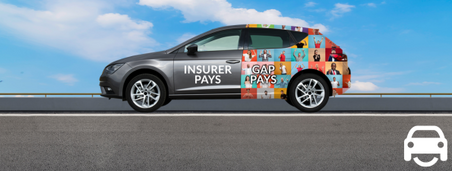EV Setback – Is the Plug Being Pulled on Electric Cars?

Electric Cars – are they so last year… or the motors of the moment?
Frankly, it seems difficult to surmise. Owners are abandoning their embarrassing electric Teslas thanks to the antics of Elon Musk, and new US President Trump’s open disdain for EVs (except the aforementioned Teslas it seems) is dampening the US market – which has a subsequent knock-on effect on the rest of the world.
Talking of car companies, they also appear to be shifting down a gear or two on their electric dreams. All told, you’d be forgiven for thinking the plug is being pulled on the whole EV revolution.
But wait – dig a little deeper and the full picture isn’t quite so clear-cut. Yes, the industry’s going through a bit of a wobble, but could it be more a case of recalibration than retreat?
The Speed Bumps
As mentioned, the Biden-led US Policies encouraging EV adoption are being rolled back. Federal funding for EV chargers has been frozen, and government agencies have been told to stop buying electric vehicles altogether. This is already affecting investment and consumer confidence
Meanwhile, closer to home, the UK government has been rethinking its own roadmap. The original 2030 ban on new petrol and diesel car sales was pushed back to 2035 by former PM Rishi Sunak, but reinstated by Sir Kier Starmer’s government.
Even so, car companies cried foul - especially with the ZEV (Zero Emissions Vehicle) Mandate targets proving tough to hit. This year, for instance, EVs are forecast to make up 24% of new car sales - short of the 28% target. The mandate is now undergoing extensive consultancy. The likelihood is, that while it won’t be scrapped, some targets may well be revised.
Things have not been helped by the downfall of Tesla, once the ranking EV in the sales chart, by the end of 2024, the brand had fallen out of the top 10 listings altogether. Brand appeal has dipped, sales have stumbled, and its market value has taken a serious knock. For a company that led the EV charge, that’s a big deal.
How about the other car companies? Ford has delayed some of its new electric models, General Motors has scaled back production targets, and Mercedes-Benz has pushed its all-electric ambitions further into the future. Even Volkswagen and Volvo are taking a more cautious approach, admitting they may have jumped the gun in their EV ambitions.
And yet the numbers…
While all this hesitancy has been going on, EV sales have actually been quietly rising steadily. So perhaps reports of the electric car’s death are greatly exaggerated after all?
Despite all the doom and gloom, EV sales in Europe and the UK are growing. January 2025 saw battery-electric cars make up over 21% of all new car registrations in the UK – that’s 140,000 cars making it the highest ever for that month and up more than 41.6% from the previous year. Across Europe, EV sales jumped by over 30% year-on-year. Germany, Europe’s biggest car market, saw a 53% rise in electric car sales compared to January 2024.
Hardly a short circuit, then – more like the system’s powering up! Okay, it’s slower than the initial surge we saw a couple of years ago, but it’s also more sustainable. The market’s simply finding its rhythm.
A reality check then, rather than a retreat, as more buyers explore the electric option, charging infrastructure improves and battery technology evolves to allow for greater driving range and faster charging.
Enter the New Players
And let’s not forget the new kids on the block. Chinese carmakers like BYD, MG, GWM, Geely and now Xpeng are making waves in Europe with affordable, tech-packed EVs that are genuinely appealing. The MG4, for example, has quickly become one of the UK’s best-selling EVs thanks to its mix of style, range and value.
Younger buyers in particular are loving these new entries. For them, a car made in China doesn’t carry the same stigma – it just has to look good, drive well and come with the latest kit. And that’s exactly what many of these brands are delivering. A recent survey showed one in five Europeans would consider a Chinese EV, and with prices often 10–15% lower than traditional rivals, it’s easy to see why.
Far from losing momentum, the EV market is actually becoming more competitive – and that’s great news for consumers.
What Does This All Mean for You?
If you’re thinking about switching to electric, don’t let the headlines put you off. Yes, some manufacturers are adjusting their timelines. And yes, there are political spanners in the works, but the underlying trend is clear – EVs are taking root and winning more converts.
There are more models to choose from than ever before, covering everything from compact city cars to high-performance SUVs, and even sports cars like the MG Cyberster. Battery range has improved massively – 200-300 miles is now pretty standard – and the charging infrastructure, while still a work in progress, is improving every day.
Plus, prices are coming down – fast. The Chinese influx is forcing the hand of legacy carmakers still wrestling with the EV transition. But additionally, the cost of the tech is reducing too. That’s creating a more competitive and affordable market. If you're looking at the used market, there's now a growing supply of ex-lease EVs coming through – well-maintained, low-mileage cars at increasingly attractive prices.
And let’s not forget the perks – no tailpipe emissions, less maintenance, and a smoother, quieter drive. And if you’re able to charge at home, the tariff is much cheaper than public chargers, plus if you install some solar panels you could well find yourself effectively motoring for free!
The plug is most definitely NOT being pulled on EVs. Instead, the motor industry is plugging into a more realistic, consumer-focused approach. There’s no retreat, just a readjustment. The adoption of EVs is still very much happening – just at a more natural pace.







